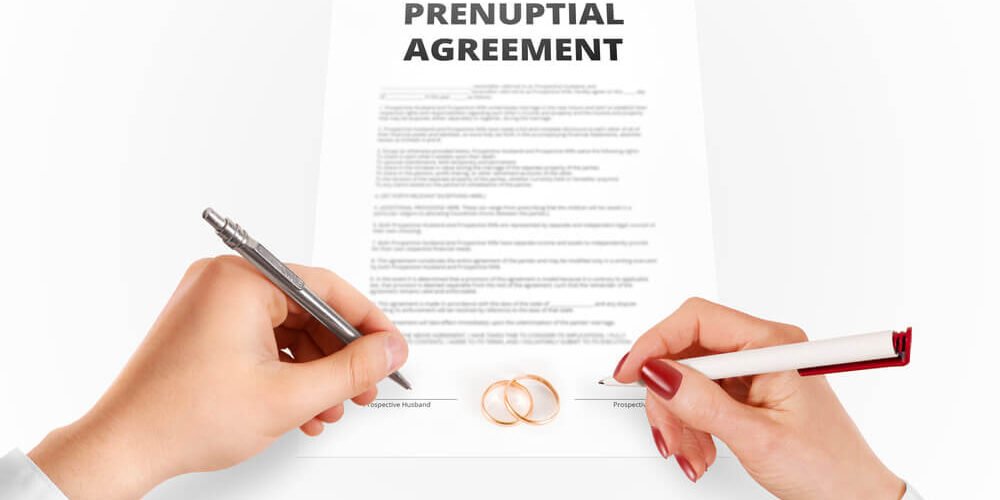There is no doubt that Spring is in the air, the days are getting longer, and people are running away from Winter as fast as they can. While shivering at times, I was even on a baseball field this past weekend watching my oldest son’s first tournament of the new season. As a matrimonial attorney, this time of year also brings wedding plans and an increase in the number of people inquiring about prenuptial agreements.
There is no doubt that a prenup can be a very useful and proactive way to protect your income and assets. It can also provide you with financial certainty in the event of a future divorce regarding support and equitable distribution, as well as guide certain aspects of estate planning in the event of death. Asking your future spouse for a prenup, as a result, should not be cause for concern or hesitation. Rather, it should be viewed as a smart way to plan for your potential future in a manner like having a Will, Trust or life insurance.
If you are unsure as to whether a prenup is right for you, here are a few questions to consider:
- Are there family assets to protect? Family members are oftentimes the primary driver behind a prenup as they seek to ensure that the assets they have built are protected in the event of a divorce. Whether a family business, stocks, real estate and more, a prenup can add another layer of protection for the family estate that may otherwise be exposed in the event of divorce.
- Do you have a business or plan on starting one? The impact of divorce on a business can prove devastating to the business’s ability to function. The business-owning spouse may also want to ensure that the entity is shielded from a potential future and highly costly equitable distribution. Such protections can extend to businesses that do not yet exist at the date of marriage but are merely in the planning stages.
- Are there premarital assets? Disclosing all assets existing when the prenup is drafted is a critical part of the disclosure process that can potentially lead to the agreement being vacated is not done properly. While the law generally protects premarital agreements from equitable distribution, a prenup can add an additional layer of protection, such as even protecting assets acquired during the marriage with premarital assets.
- Do you plan on paying alimony? No one wants to answer that question when getting married, but a prenup can dictate what the alimony arrangement (if any) is upon a future divorce. As with equitable distribution, the prenup allows you to be creative in addressing such issues in a manner that a court could not otherwise order. It is important to note in so drafting, however, that if you are going to include some sort of alimony formula in your agreement that alimony is no longer tax deductible to the payor and taxable to the payee as income.
- What about children? While it is generally considered against public policy in New Jersey to address issues of custody and child support in a prenup, language can be included to address what happens should one spouse decide to stay home during the marriage and raise any children.
- Does the other party have debt? Premarital debt will generally be exempt from distribution in the event of a divorce, but a prenuptial agreement can both confirm that the debt-carrying spouse is solely responsible for said liability in the event of a divorce and address who will be responsible for paying down the debt during the marriage.
- And yes, what about death? Many prenuptial agreements will dictate what happens to the marital estate in the event one spouse dies. Such language, which may include, for instance, a waiver of certain beneficiary or elective share rights, often goes hand-in-hand with estate planning.
There are many potential benefits to having a prenuptial agreement. Determining whether having one is right for you can be a decision driven by emotion when, ultimately, it is a prudent way in which to plan for your potential future






